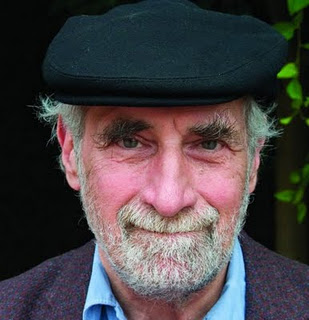by Jarrett Hoffman
FREDERIC RZEWSKI, 83:
American composer and pianist Frederic Rzewski passed away at the age of 83 on Saturday after suffering cardiac arrest. Political themes have been at the center of much of his stylistically varied music, including his well-known set of piano variations The People United Will Never Be Defeated!, considered a classic of the modern era.
ClevelandClassical.com’s Daniel Hathaway had a fascinating interview with Rzewski in 2010, discussing his path to new music and improvisation, and more. Read that here, and read William Robin’s obituary in The New York Times here.
RE:SOUND PLAYLIST:
The Re:Sound New Music Festival continues through this Wednesday, June 30. Register if you haven’t already, then check out the final weekly playlist, “Persistence.”
GUITAR SOCIETY:
The latest video in the Creative Fusion series from the Cleveland Classical Guitar Society, in collaboration with the Mexican Committee of Cleveland, brings us Hermelindo Ruiz’s To Soar Beyond for guitar and string quintet. It’s inspired by the Puerto Rican genre of danza, and “reflects the composer’s thoughts on how music can provide solace in difficult times…” Hermelindo is joined by five Cleveland Orchestra musicians. Watch here.
TODAY’S ALMANAC:
Look past the long series of discarded marriages — more than one ending with a beheading — and you might find interest in the musical side of Henry VIII (born on this date in 1491). BBC Music Magazine explored his impact on the music scene (both harm and help), and his own musical contributions in an article from 2016.
Another historical figure who had a keen interest in music, but who is more famous for his contributions to other disciplines, is Jean-Jacques Rousseau (born today in 1712). That writer and philosopher was also a composer, with seven operas to his name, including the one-act Village Soothsayer. Watch a 38-minute video production dating from 1962, featuring the Orchestre de la Suisse Romande, led by Samuel Baud-Bovy.
Rousseau was also a music theorist, developing a system of musical notation that would be compatible with typography: it would use a single line, with numbers expressing different intervals, and periods and commas indicating rhythm. He presented it to the Academie Des Sciences and was rejected, though they seem to have been impressed, and even requested that he have another go at it.
Moving onto names most famous for their music-making, we continue with Hungarian violinist, composer, and conductor Joseph Joachim, born on this date in 1831. One of the great violinists of the 19th century, he was a close collaborator of Brahms, premiering the composer’s Violin Concerto in 1879 with Brahms himself on the podium. Even much earlier, at age 13, his performance of Beethoven’s Violin Concerto (with Felix Mendelssohn conducting) helped bring that work into greater esteem.
In 1903, Joachim became one of the earliest violinists to be recorded: hear him in fuzzy but fascinating renditions of Brahms’ Hungarian Dances Nos. 1 and 2.
And finally, composer Richard Rodgers was born on this date in 1902 in New York City. He’s most famous for his work in musical theater, particularly in collaboration with Lorenz Hart and Oscar Hammerstein II — the latter partnership became the most successful in the history of American musical theater.
And though the EGOT was not such a historic concept at the time, Grammy Awards still being in their infancy, Rodgers became the first person to ever receive Emmy, Grammy, Oscar, and Tony Awards. (He also received a Pulitzer — only he and Marvin Hamlisch have ever taken in all five awards.)
The Sound of Music — the last musical by Rodgers and Hammerstein together — not only won five Tonys, but its film version won five Oscars. Watch a clip from the movie, where Julie Andrews memorably sings the title track.




